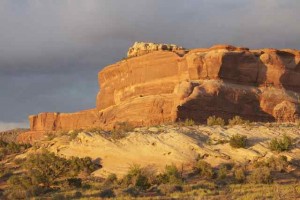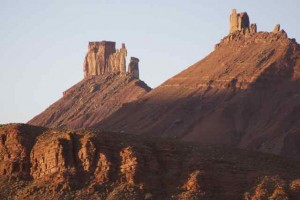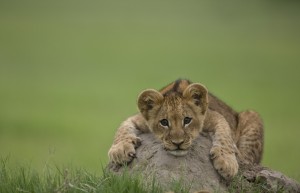Being Green Colorado Mountain Living Telluride Telluride Festivals: Being Green Colorado Mountain Living Telluride Telluride Festivals
by maribeth
1 comment
Welcoming Summer and Contemplating Climate Change
Some 12,000 people ushered in summer over the weekend at the thirty-eighth annual Telluride Bluegrass Festival here in my pristine mountain town. That’s about four times the year-round population of Telluride, a town that has remained picture-perfect partly due to its remote location. Just over 4,000 of these folks were campers, many of whom came from all over the country to attend this world famous four-day happening of sun and song, free spirited-ness and fun. If you look around T-ride today, you’d hardly guess that the town of Telluride and Planet Bluegrass had put on such a party just a couple days ago. Even throughout the festival, there’s scant evidence of un-managed festival waste and even fossil-fuel burning vehicles are kept at a minimum. (Lots of bicycles and enthusiastic walkers though.) Indeed, the organizers of the Telluride Bluegrass Festival know that our majestic mountains and verdant valleys are as much a prized part of this great summer solstice gathering as the picking and strumming of festival regulars Sam Bush, Tim O’Brien, Jerry Douglas, Peter Rowan and Béla Fleck. Festival organizers have imparted this love and will for preserving the environment to their devoted festivarians and best of all, facilitate people’s ability to reduce waste at every turn.
Indeed, Telluride and Telluride Bluegrass Festival serve as an inspiring model for how to take the best care of a good thing. But as I was reminded in a post, entitled State of the Ocean: Shocking Report Warns of Mass Extinction from Current Rate of Marine Distress, from today’s Huffington Post, not everyone is on the same page. Many people are talking about the direction in which the world is headed, but it seems as though not enough people are doing enough about it. As New York Times columnist Thomas Friedman ponders in his recent piece, The Earth is Full, we’re apt to look back at the first decade of the twenty-first century in a few years and wonder why we didn’t panic when the evidence was so obvious that we’d crossed some growth/climate/natural resource/population red lines all at once.
In this time of soaking up the great outdoors, I challenge everyone to begin today to take even better care of the world around us. It all begins with awareness. And then more awareness. And more. And more. And then you start to fine tune your habits. I did just that when I saw “Bag It,” a film about plastic and its effects on our bodies and our world, at last year’s Mountainfilm. In case you missed it, read Brand New Me, Brand New Me: Surveying My Potions, Lotions and Other Pampering Paraphernalia and “Bag It” and Green Travel. I’m still working to reduce my use of plastic and my carbon footprint overall and there’s lots of room for improvement. My amount of recyclables far surpasses my trash, however, and I choose glass over plastic at every opportunity. (I’m almost compulsively collecting plastic bottle caps under my sink, so if anyone knows for sure what to do with them, please tell me.)
Thank goodness we have people driven enough to go beyond their own personal responsibility of picking up after themselves. Tim DeChristopher, and his act of peaceful civil disobedience in this time of global climate crisis, is one such person. Yeah, he’s the guy that upended the auction of prime wilderness in Utah that would have otherwise been slated for oil and gas drilling. We’re talking about land very much like Arches National Park and Canyonlands. Just look at the above images. That’s the place, folks. Images that weren’t even allowed as evidence in Tim DeChristopher’s trial. I had no idea that Tim was such an intelligent and strongly committed environmentalist until I saw the Bidder 70 presentation at this year’s Mountainfilm. Documentary filmmakers and part-time residents of Telluride, Beth and George Gage tell Tim’s story in “Bidder 70,” a moving and inspiring film that will likely be finished after Tim’s upcoming sentencing. Tim’s sentencing was supposed to take place this Thursday, but that has been postponed until July, likely to divert attention from the Climate Action Protest planned around this event. The protest is still set to occur and I encourage you to find out how you can express your opposition to global warming and more at Peaceful Uprising. If nothing else, please think twice about driving your SUV to the corner store.
Also at Mountainfilm, I saw “The City Dark,” a film that chronicles the disappearance of darkness. Yes, those twinkling city lights can be enchanting but the impact they’re having on the environment is shocking. The lack of a dark, night sky is effecting all kinds of species and habitats, including hatching sea turtles, for example, that are finding themselves more drawn to coastal lights than to the ocean where they must go to survive. As you look up into the night’s sky this summer, just imagine how many more stars and planets you could see without such luminary interference by man.
By the same filmmaker Ian Cheney and also at Mountainfilm, I loved Truck Farm, a whimsical and inspiring movie about how you can take green roof technology, heirloom seeds and an old pickup truck and create a mobile garden that delights both the belly and eye. Ian Cheney takes sustainable living to a new level, one that everyone is sure to enjoy, especially city dwellers that may long for their own patch of land. Buy the DVD for the favorite gardener in your life!
I love animals and movies and T.V. shows that help us to better understand our relationship with our four-legged friends. “Buck,” a documentary I also saw at Mountainfilm, opened last week in New York. I hope it will make it to other movie theaters around the country this summer for it’s a touching film about life’s challenges and how you can turn even a bad situation around to your advantage. Based on the story of Buck Brannaman, the inspiration behind the novel and movie “The Horse Whisperer,” “Buck” enlightened me about how to more effectively communicate with animals and people. There’s a lot to be said about a firm, yet gentle approach. Read the review in last week’s New York Times.
I was also recently very moved by The Last Lions, a National Geographic movie about the battle for survival that’s being waged in Africa by the world’s big cats. Did you know that fifty years ago there were about 450,000 lions in Africa and now, due to the encroachment of man, they’re down to as little as 20,000? Watch the trailer and Nat Geo will contribute $.10 to lion and big cat conservation in Botswana. The cinematography is, of course, magnificent. For more information on National Geographic’s conservation efforts all over the globe, go to Cause an Uproar.
Even with all the challenges the world is facing, we have an infinite number of reasons to be happy. If you have any doubts at all, find a way to see Happy, the movie, by Academy Award nominated director Roko Belic. Or just click here to see the trailer. And then encourage your favorite local theater to screen it. You’ll want to spread this kind of happy. It’s a movie. It’s a movement. It’s a way of life. If you adopt this kind of happy, you’ll likely stay home more and spend more time with the ones you love. You’ll realize you don’t have to be doing and buying as much to make yourself happy. That in turn will make the world a happier place.
And then that will end up circling back to you. You’ll be able to see more stars in the sky and more animals roaming in the bush. There will be more fish in the sea and cleaner surf. Our fruits and vegetables will taste better. Our unspoiled lands will remain forever wild and scenic. We’ll begin to be more in balance.
Happy summer everyone!
Dr. Wallace “J.” Nichols, marine biologist extraordinaire, will be my guest on my next Travel Fun that airs Tuesday, June 28 at 6:30 p.m. mountain time. As we plunge into this big season of sand and surf, J. will share his knowledge of and experiences in the big blue and how we can better take care of our oceans. As I saw in the most photogenic short “Chasing Water,” by Pete McBride, also at Mountainfilm, the Colorado River dries up long before it hits the sea. Never doubt the connection between the mountains and our oceans. We’re all connected in fact.
Here’s a new festival to hit Telluride: the Compassion Festival. This three-day event will bring together cutting-edge neuroscientists, Tibetan Buddhist practitioners and teachers of Native American wisdom traditions together for panel discussions, conversations, ceremonies, movies and more in an effort to take a more encompassing look at our world in crisis. Presented by the Telluride Institute July 8-10.
Thank you to Benko Photographics, Beverly Joubert and lots of other kind folks for the use of the above images.









